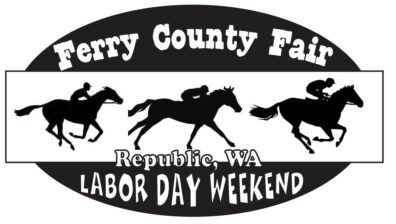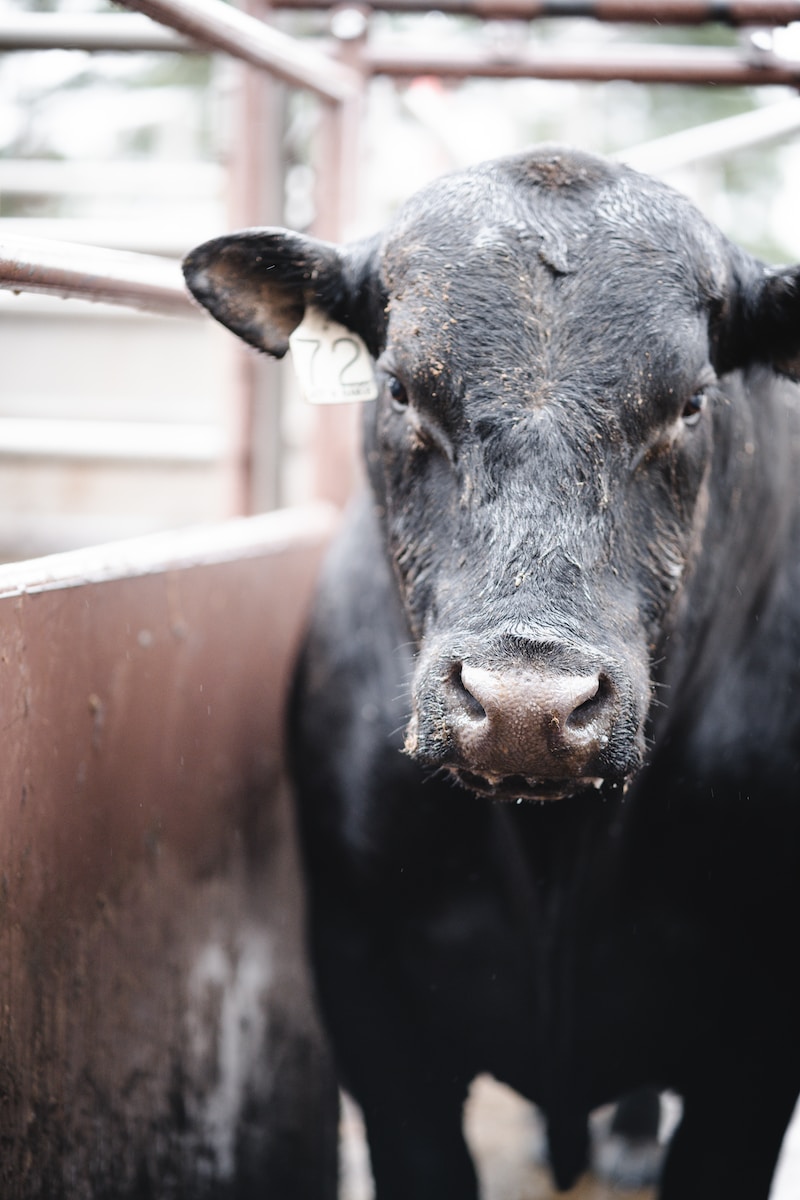OWNERS OF LIVESTOCK, HEALTH REQUIREMENTS FOR ANIMAL, PLEASE READ Also see Animal Code of Ethics
- The fair will have official fair Veterinarian(s).
- Individual Health Certificates on Washington animals are required for entry into the Ferry County Fair. The health status of entries is ascertained at the time of entry and will continue under the Barn Superintendent’s surveillance while on the Fairgrounds. All entries must be free from visible evidence of infectious and contagious disease when presented and must remain so while on exhibit. The fair Veterinarian will be the final authority in determination of suitability for exhibition and upheld by
the fair Board and Association. - Any animal refused by the veterinarian at check-in must be removed from the Fairgrounds and returned home immediately. There are no facilities to house animals that can’t be exhibited. No animal from a quarantined area may be permitted to enter the fair or show.
- Exhibitors should note and respect the potential for exposure to health-threatening conditions while at a Fair. Crowding of animals, long distance hauling and changing environmental conditions are major stresses to which exhibit animals are subjected. Animals, like humans, have the capability to become recovered carriers of viruses or other infectious agents. Exhibition-imposed stress may cause a recrudescence or reactivation with resulting outbreaks of disease. The fair Management will do all in
its power to protect each exhibit while on display. - “4-H Animal Exhibitor Commitment to Quality Animal Care”. *The exhibitor has important responsibilities prior to fair time. Implement these responsibilities three weeks before entering the fair circuit. Vaccinations must be up to date and an effective parasite control program employed. State-of the- art preventative care strongly recommended for all animals exhibited.
- Animals not intended for exhibition will be denied entry to the Fairgrounds.
- Fair Veterinarians will reject any animal with infectious or contagious diseases or ectoparasites. Exhibitors should be aware that ringworm, warts, pinkeye, strangles, contagious ecthyma, scabies, lice, mites, ticks and fleas fall into these categories.
- Animals exhibiting disease symptoms during the course of the fair will be rejected by the fair Veterinarian and removed from the exhibit area.
- “Out-of-State” animal entries must comply with the State of Washington import regulations or receive an exemption from state veterinarians for exhibition at the fair only.
- Barn Superintendents and Supervisors have the authority to call a veterinarian in an emergency. The owner will be responsible for all expenses incurred.
ABSOLUTELY NO DOGS ALLOWED ON THE FAIRGROUNDS DURING THE FAIR.
Please make boarding arrangements if you cannot leave your pet at home.
Only service and guide dogs permitted to enter the grounds. 4-H/Grange Dogs permitted in designated
areas with proper 4-H/Grange identification available upon request. Designated travel routes are required
for transporting exhibit dogs to the Dog Barn. Thank you for your cooperation and understanding. Please
feel free to contact the fair manager with any concerns or questions regarding these rules.
CATTLE
- All female cattle over 12 months of age MUST be vaccinated for brucellosis (BANGS) virus.
- It is strongly recommended that preventive protection against IBR (infectious bovine rhinotracheitis), BVD (bovine virus diarrhea), PI3 (Para influenza 3 virus) and leptospira (5 serotypes), clostridial diseases, (i.e. Blackleg and malignant edema), pasteurella, haemophilus and RSV (respiratory syncytial virus) be provided. Immunization must be completed a minimum of 3 weeks prior to exhibition in order to provide the intended protection.
DOGS AND CATS
- All dogs, regardless of origin, THREE (3) months of age or over must show evidence of vaccination with an approved rabies vaccine. Exhibitors must present proof of vaccination by a licensed veterinarian, against rabies. Dogs should also be vaccinated against distemper, infectious hepatitis, leptospirosis, par influenza, parvo and corona viruses. Owner must bring proof of certificate indication the dates of last shots.
- Vaccinate all Cats against rabies with an approved vaccine. Cats should also be vaccinated for feline panleukopenia, feline rhinotracheitis, Cilicia and leukemia viruses and Chlamydia.
EQUINE
- Consider preventative measures. Please see General Veterinarian Information.
- The West Nile Virus is being diagnosed in some equine in Washington. While not requiring vaccine protection from this mosquito-borne illness, appropriate vaccine protection is encouraged by the Fair.
- Since incidents of equine Rhinopneumonitis (Equine Herpes Virus, EHV-1), Eastern and Western Encephalomyelitis, Influenza and Tetanus occur in Washington, the fair recommends vaccine protection.
LLAMAS/RABBITS/CAVIES
- Consider preventive measures. Please see General Veterinarian Information.
SWINE
- All “Out of state” swine are required to have a certificate of Veterinary Inspection, Official USDA Identification and entry permit number, which may be a blanket permit number issued to that specific fair. Market hogs are required to be bought in State.
SHEEP/GOATS
- Consider preventive measures. Please see General Veterinarian Information.
- Scrapie Tag Requirement: All sheep and goats (4-H/Grange and Open) over 18 months of age (ewes, rams and wethers) and sexually intact sheep (rams and ewes) and all sexually intact goats (bucks and does) MUST have an official USDA Scrapie identification. Note: Market Lambs are NOT required to have Scrapie Tags per USDA guidelines. Scrapie defined as a fatal degenerative disease affecting the central nervous system of sheep and goats. Scrapie classified as a transmissible spongiform encephalopathy (TSE).
POULTRY
- Due to Salmonella Pullorum-Typhoid ALL show birds (excludes waterfowl, doves and pigeons) must have been bought from either NPIP participants, Hatcheries or feed store. Ask for a certificate from whom you purchased your bird.
- Or be tested (Blood drawn) within 90 days of fair by a vet. No exceptions and you will not be allowed to exhibit your bird.
- Barn Superintendents or Supervisors will perform a preliminary health inspection upon arrival and issue stall cards.
VETERINARIAN HOURS
The Veterinarian(s) will be on the grounds during the following hours to review the Barn Superintendents or Supervisors preliminary health inspections and to stamp stall cards. Be sure to check the time that your animals must be on the grounds by. Monday 6-8 p.m.; Tuesday 8-10 a.m.; Wednesday 12-12:30 p.m. (Dogs/Cats) and 6-8 p.m.; Thursday 10 a.m.-1 p.m. Veterinarian hours are approximate and are subject to change without notice.

